Which Animals Have a Menopause and Why Does It Happen?
Menopause is a biological stage of a female animal’s life. It occurs when her reproductive organs (ovaries) stop producing eggs and she becomes infertile – she can no longer have offspring. For humans, it is marked by their menstrual periods (bleeding) stopping. Not all animals experience menopause many continue to reproduce until they die. So which animals have a menopause and why does it happen at all?
Menopause in Humans

©PeopleImages/iStock via Getty Images
Humans (Hompiens sapiens) are a primate who evolved around 200,000 years ago. We are the only surviving species of the Homo genus and our closest living relatives are chimpanzees, gorillas, and bonobos. Our ancestors were hunter-gatherers who lived in Africa.
A female human reaches sexual maturity around the age of 12 to 15 years which is indicated by her menstrual periods starting. She produces one or more eggs in each cycle and is able to get pregnant during a few days in each month. The human gestation period is nine months and human babies are pretty helpless when they are born!
Human life expectancy varies by geographic location with the highest average being in Hong Kong where it is 87.9 years. Human menopause occurs around the age of 50 years. After this women are referred to as post-menopausal. This gives human females a potential 37 years of life when they are not producing offspring! In contrast, life expectancy in Chad in Africa is just 54.3 years, and in the US it is 79.3 years.
The menopause can be a challenging time for women as the hormone fluctuations around the menopause can cause a range of symptoms. These include night sweats and mood swings. On an emotional level, the menopause can be viewed by women in different ways. Some see it as a negative time in their lives and mourn the loss of their reproductive status. Others are glad to be freed from the constraints of pregnancy and child-rearing and find it a very productive and creative time of their lives. This is connected to how different cultures and human societies view the menopause. Many Western cultures have traditionally viewed it negatively. In contrast, post-menopausal women in many indigenous cultures are community leaders with considerable power and status as spiritual elders.
Chimpanzees Sometimes Have a Menopause
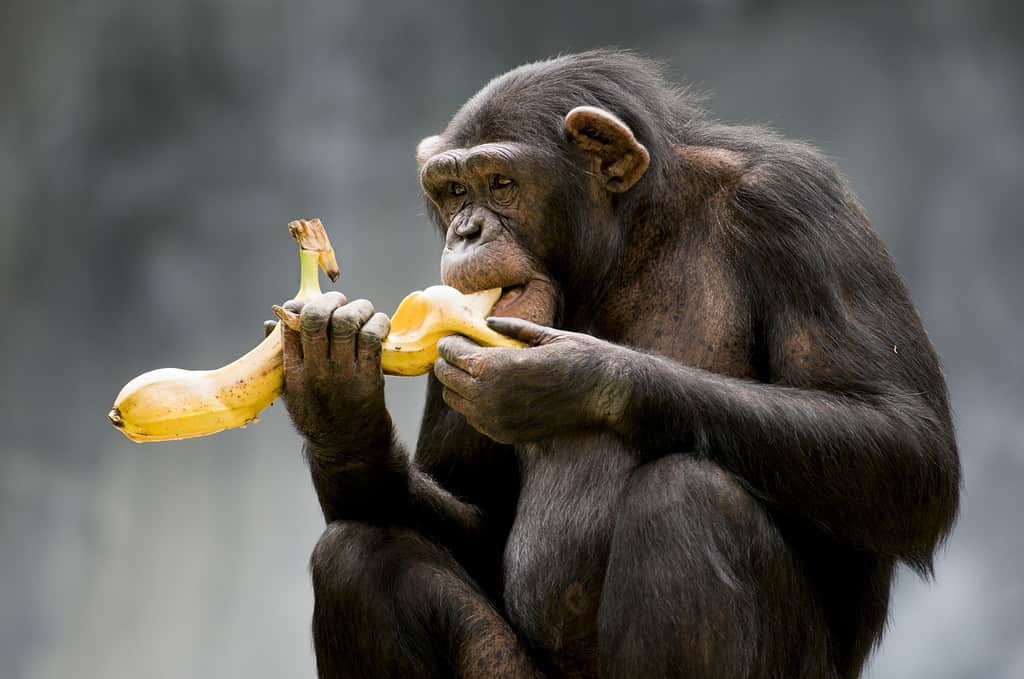
©Windzepher/iStock via Getty Images
Given that chimpanzees are such a close relative of humans you would be forgiven for assuming that they would also experience menopause. However, until recently it had only been observed in a few captive individuals who lived for a particularly long time. Recent research including hormonal tests has suggested that wild chimpanzees ceased to be fertile after about the age of 50 fertility having declined from the age of 30. Some chimpanzees can live to be older than 60 years of age.
Menopause in Orcas
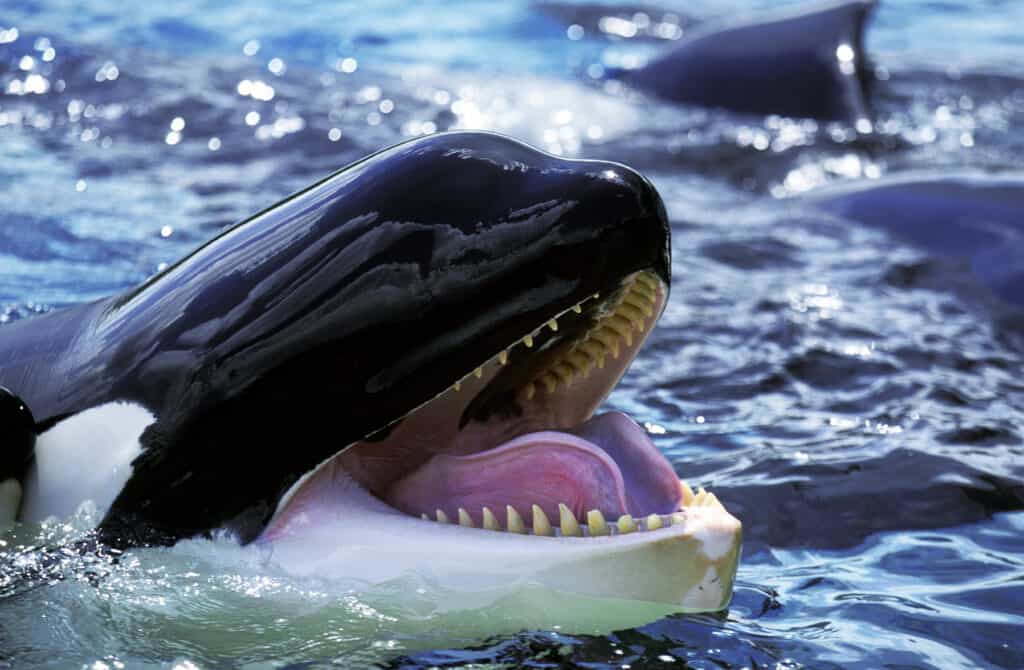
©slowmotiongli/Shutterstock.com
Orcas (Orcinus orca) are sometimes called killer whales and are a member of the Delphinidae family along with several species of dolphins. Nevertheless, they are the only species in that family to experience menopause. Females reach sexual maturity between the ages of six and 10 years and have multiple fertile periods during the year. Their gestation period is around 14 months and they have a calf every six to 10 years.
Mother orcas invest a lot of effort in their offspring whom they nurse for over two years. They also teach them how to hunt. In the wild, their lifespan is around 63 years but killer whales of 90 years old have been recorded. They stop breeding when they are around 40 which gives them at least 20 years of post-menopausal life! There is plenty of evidence to suggest that these older females play a critical role in leading the pod to food sources especially when prey is scarce.
Short-Finned Pilot Whale Menopause
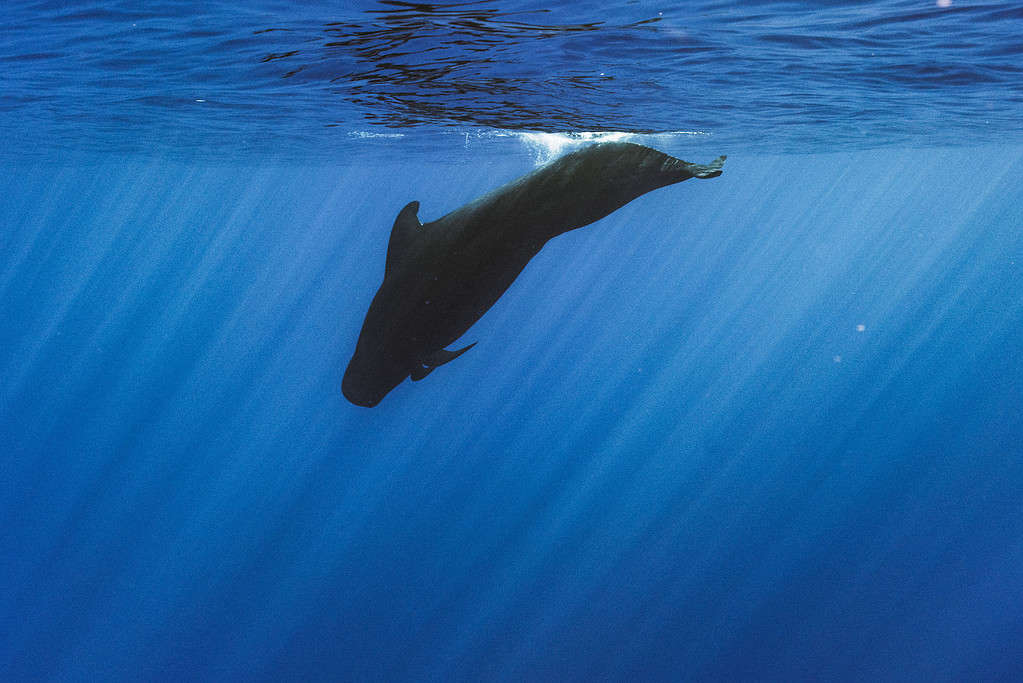
©Wirestock/iStock via Getty Images
The short-finned pilot whale is a native species of the Atlantic, Pacific, and Indian Oceans. Their gestation period lasts around 15 months. The weaning period lasts for 24 months and a female will typically have between four and five calves during her lifetime. Females reach sexual maturity at around seven to 12 years and stop breeding when they reach the age of 40. Considering their average lifespan is around 63 years, this gives them at least 20 years of post-reproductive life. Similar to the behavior seen in orcas, the older nonbreeding females are a repository of vital information for the rest of the group.
Menopause in Beluga Whales and Narwhals
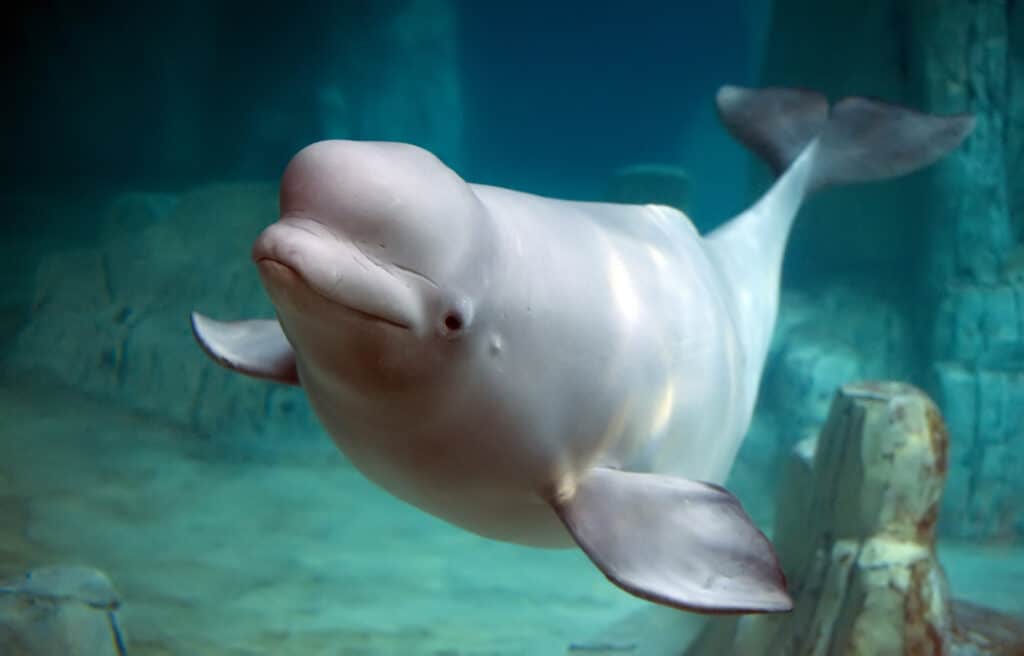
©Luna Vandoorne/Shutterstock.com
Beluga whales and narwhals are members of the Monodontidae family of mammals. Belugas reach sexual maturity between four and seven years of age and give birth once every three years so they have about 10 pregnancies during their lives. Gestation lasts for between 12 and 15 months and the calves are nursed for around two years. Hormonal studies have shown that an older beluga female’s ovaries stop working completely. This means that they enter the menopause at around 40 years of age but many belugas live to be over 60 years of age. Similarly, female narwhals enter menopause in their mid-40s and some can live to be 80 years old!
Do Giraffes and Elephants Have a Menopause?
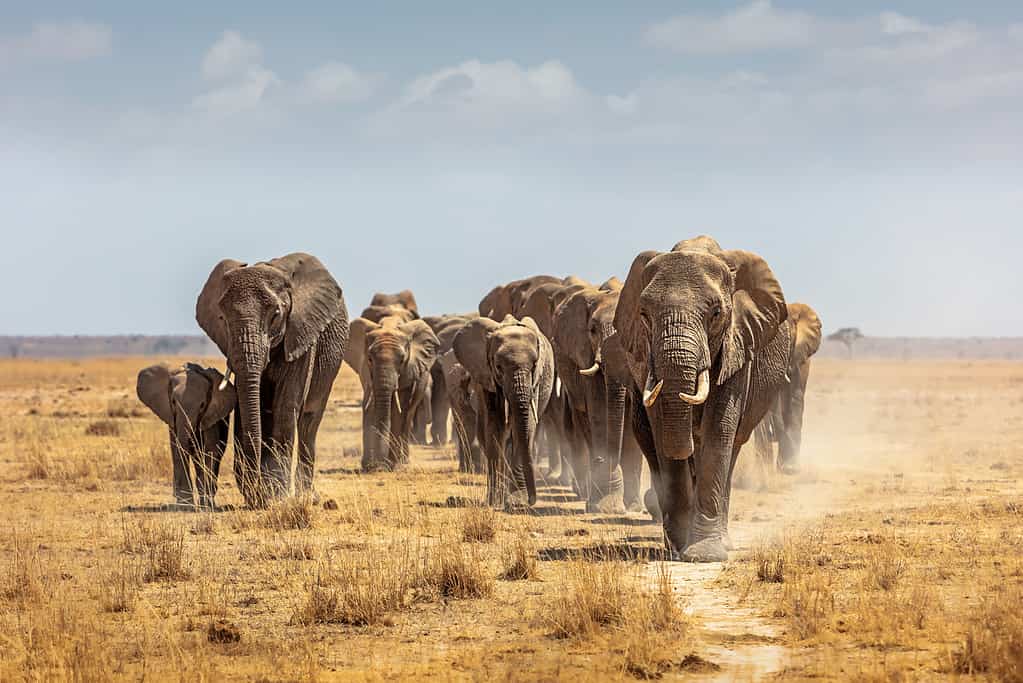
©adogslifephoto/iStock / Getty Images Plus via Getty Images
Scientists have recognized for some time that elephant herds include older matriarchs who are post-reproductive females. They are often the leaders of the group and the holders of much of the knowledge that the elephants need to survive. More recently it has been recognized that giraffes can live for eight years after they can no longer reproduce. This represents around 30 percent of their total life. New research suggests that complex social relationships amongst female giraffes result in older females helping to raise the foals.
Does the Menopause Have a Purpose?
It is possible that there is no evolutionary advantage to menopause at all. If we look at our closest living primate relatives, most of them do not experience menopause. They stop having babies in their late 30s and die soon afterward. Perhaps the menopause has simply arisen because humans are living much longer than they used to. It could be argued that we don’t stop reproducing any earlier than other primates it’s just that we started to live longer.
Why Does the Menopause Happen?
There are many scientific hypotheses for why certain species experience menopause. Here is just a selection.
The ‘grandmother hypothesis’ is one potential explanation for why females go through the menopause. If a woman lives long enough to help raise her grandchildren, she gives those children a better chance of survival. She is no use to them if she is dying in pregnancy or childbirth! Therefore, daughters who have postmenopausal mothers are more likely to have children who survive and who go on to reproduce. This is how humans ended up having a menopause. This theory dovetails nicely with the indigenous view of postmenopausal women being a valuable resource in terms of knowledge and experience. The theory is also supported by the fact that older women in hunter-gatherer societies on Earth today are the most productive in their communities. However, other experts argue that the reproductive benefits are just not great enough for grandmothers to stop reproducing themselves.

©PeopleImages/iStock via Getty Images
Another argument is around a concept called reproductive conflict which is sometimes called the ‘mother-in-law theory.’ In some species, younger females do not reproduce and instead act as helpers to the older reproducing females. In humans, however, things are the other way around. There is little overlap between the generations and women tend to stop producing just when the next generation is starting. This may be because historically women moved to their male partner’s communities. They had no genetic benefit by helping to raise their mother-in-law’s children. On the other hand, the mother-in-law would benefit from raising the young woman’s children because they are her grandchildren!
The ‘mother hypothesis’ suggests that older mothers profit more by investing their resources in their existing children than in giving birth to new ones. It is a sad fact that older mothers are more likely to die in childbirth and to have stillborn children or children with birth defects. Therefore, it is preferential for her existing children if she stops having any more children and concentrates on them!
Summing up Why Some Animals Have a Menopause
Humans, orcas, short-finned pilot whales, beluga whales, and narwhals all experience menopause. Chimpanzees, elephants, and giraffes may also have a similar process. There is no consensus of opinion about why this happens. It may be an evolutionary trait that confers an advantage because older females are helping to raise offspring. Alternatively, it may be a reflection of increased lifespans in some species. However, there is no denying the vital role that post-reproductive females play in many animal groups.









